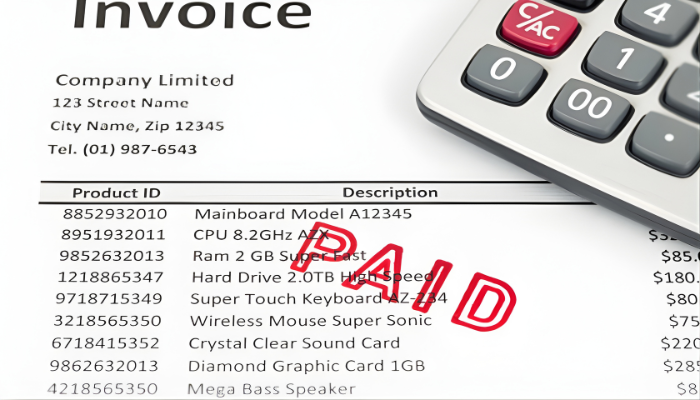
Your application for invoice factoring got rejected. What do you now?
It is never fun to get an application rejected. You have a ton of questions going through your head. You were counting on the application being accepted and it wasn't. You probably have no idea what do to next.
Common Reasons for Application Rejection
Problems often start with the application itself. Here are four common issues found with applications:
- Hard-to-read application - This is more common than you might think. If someone fills out an application with illegible handwriting, the factoring company may not be able it. The best solution is to provide an electronic application or have someone with legible handwriting fill it out.
- Incomplete application - The factoring company will not approve an application without all the information. You may have missed a section due to being in a hurry or because you don't want to share negative information like a tax lien. Just remember. Incomplete sections will cause an automatic rejection, while negative information may not.
- Missing documentation - An integral part of the factoring application is the backup documentation. Applicants often need to provide copies of A/R aging reports and customer lists, among others. If this documentation is missing, the application is not complete and will get rejected.
- Providing wrong or misleading information - This is the most egregious thing an applicant can do. Factoring companies thoroughly cross-check information provided by applicants. If obvious discrepancies are found, the application will be rejected and the factoring company will not accept re-applications.
Even if the application itself is good, there are other reasons why the factoring company will decline to do business with a particular applicant company.
- Factoring may not be a good fit for the applicant company. A typical factoring client provides products and services to mid to large size businesses, offering up to 60 or 90 days to pay. If you don't have such clients, or your repayment terms aren't standard, the factor may reject the application.
- The applicant's clients do not have good commercial credit. Factoring helps free up cash from open invoices with creditworthy customers. If most of those customers are not creditworthy, the factor will reject the application.
- The applicant has liens, back taxes, or judgements still pending. A factor will only advance money on invoices that are free of legal encumbrances. If you have a bank loan that uses the invoices as collateral, or a tax lien against the business, those invoices are not free and the factor will reject the application.
- The officers or managers of the applicant company may have a negative background. Most factoring companies embrace the philosophy that a company is only as good as the people running it. Applications can be rejected for past criminal activities, personal bankruptcies, or tax issues. But, there are no hard and fast rules. Being up front is the best way to overcome these negative issues.
- The factoring company is not familiar or comfortable with the applicant's industry. Many factoring companies are open to all industries. However, they are often comfortable working with just a handful. If they find the invoice/payment structure of a particular industry is too unfamiliar, they may reject the application.
Why Was Your Application Rejected?
When the factoring company informs you the application was rejected, they may or may not indicate the cause of the rejection. Some factoring companies do not want to deal with applicant's negative reactions. In a few cases, applicants have become extremely defensive and even aggressive.
If the factor provides the rejection reason, you are in luck. You have a clear reason and can make corrections or look for alternative sources of funding.
If the factor does not provide the rejection reason, what do you do? The best approach is not to take the rejection personally. Approach the factoring company professionally and ask "What can we do to improve our chances of acceptance in the future?" And listen to what they have to say.
What Do You Do Next?
You have a few options when it comes to the next step.
- Redo the application and resubmit it to the same factoring company. If the application was incomplete or illegible, the factor will usually accept a new, complete application without any issues.
- Submit a new application with another factor. If the current factor is not comfortable with your industry, or not receptive to a new application, you can bring your application to another factoring company.
- Look for alternative funding options. Factoring may just not be a good fit for your business.
The bottom line: Try not to take a factoring application rejection personally. Find out what happened and if you can correct the problem.

















